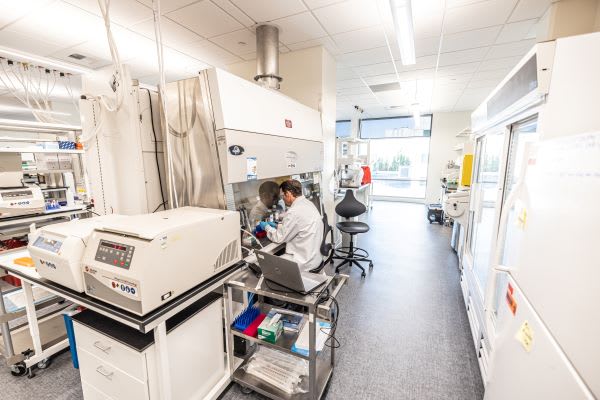Swedish Cancer Institute
At the Swedish Cancer Institute, our team works in a collaborative environment to focus on you – not your disease. We fight cancer using every available tool, from the rapidly developing science of gene sequencing to innovative treatments and therapies to the compassionate caring and support you and your loved ones deserve.
Talk to Someone or Make an Appointment
Phone: 1-855-XCANCER (1-855-922-6237)
Why Choose Us for Your Cancer Care?
At Swedish, we know how important family celebrations and special occasions can be. Together let’s finish cancer so you don’t have to miss any of these moments.
Cancers and Conditions We Treat
Choose from common cancer types below or view all

Patient Resources
Our expert multi-disciplinary team of cancer specialists and board-certified surgeons offer personalized, compassionate care.
- New Patient Information
If you are a new patient, here are some quick resources to help you prepare for your first appointment.
- Cancer Education Center
Your free resource for patient education about all cancer types.
- Oncology Social Work, Counseling, and Psychiatry
Our team offers compassionate psychological and emotional support.
- Complementary Therapies
Personalized care to support every patient.
- Classes, screening and prevention
Regular cancer screening can prevent some cancers, and catch others early, when they are easier to treat.
Find Cancer Care Close To You
Meet the Team
At Swedish, you'll have access to a vast network of dedicated and compassionate providers who offer personalized care by focusing on treatment, prevention and health education.

Get a Second Opinion
At the Swedish Cancer Institute, we believe that second opinions are often a good idea. Our care coordinators will help determine which physician you should see and help set up an appointment. They also can help arrange for medical records, images and lab reports to be sent to the right place. Call 1-855-XCANCER to request a second opinion.
Commission on Cancer Accredited Program
The Commission on Cancer (CoC) is a group of organizations dedicated to improving survival and quality of life for patients with cancer by setting—and raising—standards. The CoC promotes cancer prevention, research, education, and monitoring of comprehensive quality care. Providence is designated as an integrated network cancer program, by the American College of Surgeons, the overseeing organization of the CoC. As an accredited program, you can feel confident knowing that our patients receive high-quality, coordinated care. We provide supportive services and resources addressing the full continuum of care and ensure our patients receive:
How You Can Help
Your donation today can help us continue to provide critical programs with the technology, equipment and resources needed to turn the latest medical research into outstanding patient care.
News & Information From Our Experts






